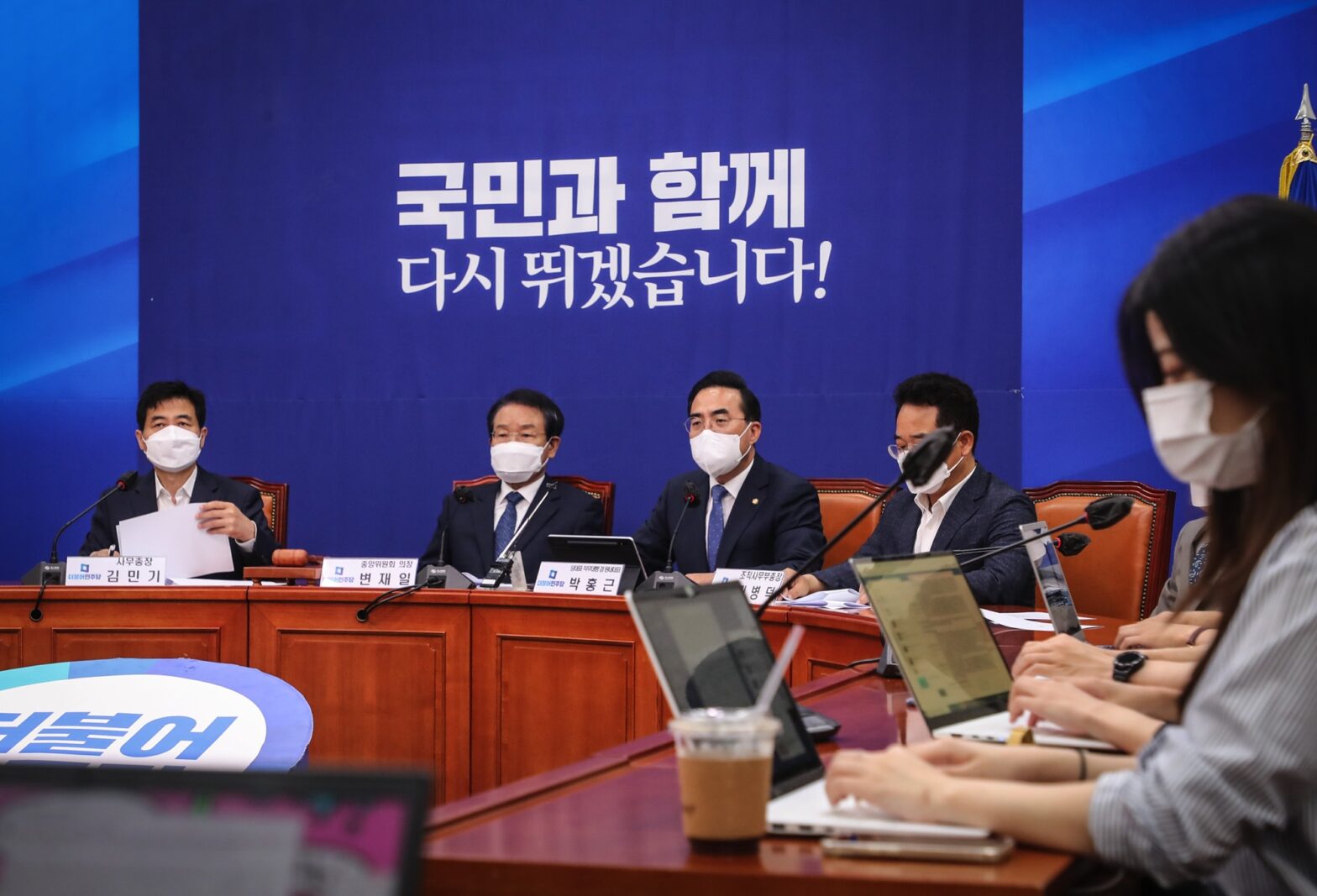Why did Moon recommend China apologist book to public?
After election: Minjoo’s traditional support base falling apart
No one doubted that the June local election would be Minjoo’s defeat. I already discussed some reasons, so let’s look at other things I haven’t mentioned.
One remarkable result is Minjoo’s decline in the Gyeonggi region. Minjoo’s Kim Dong-yeon barely managed to win the governor post. Still, at the sub-Provincial level, the result is devastating: out of 31 cities, Minjoo got only nine mayoral positions this time. (To give you perspective, Minjoo got 29 in the previous election in 2018.)
Is this a result of the swing voters flocking to the ruling party, or is there something deeper?
Cho Gwi-dong says that the traditional support base for Minjoo is now falling apart. According to him, Minjoo had established its broadest support base by congregating major city’s white collars, small business owners, blue-collar workers, and urbanized migrants from the Honam area.
Especially those who migrated from Honam to Gyeonggi cities during the rapid industrialization make up the founding stone of the Minjoo bloc. You can find them where old industrial complexes are: Incheon, Ansan, Gunpo; you name it.
(I often see old farmers around where my garden is located—also where Lee Jae-myung won a seat at the Assembly by a small margin—and one day, I heard them drinking together and talking about their sorrow (or han?) in the old times of being discriminated against for being from Honam.)
Cho says Minjoo became the white-collar upper class’s party under the Moon administration. (In case you need proof.) The lower-class supporters lost faith in Minjoo as it did little to make up for surging housing prices and the polarizing labor market.
After election: schisms in losers and winners alike
To paraphrase Tolstoy, each unhappy party is unhappy in its own way. Even if they won an election or two.
As I mentioned, Minjoo is now on the verge of big infighting over who’s to blame for its defeat in the last election and the next party leadership. Some even predict a split though I’m not there yet.
However, this is pretty much predictable. They lost the two battles in a row and are now in disarray.
But why is the PPP also on a similar verge?
Just before the local election, the ruling party floor leader Kwon intercepted Prime Minister Han’s pick for the chief of the Office of Government Policy Coordination. The so-called pro-Yoon lawmakers tried to form their own group within the party, and the party chief had a public feud with a party veteran over his push for reform.
One reason is that the support base of Yoon and the PPP is still weak. Indeed they won the presidential and local elections, but it was mainly due to the Minjoo support bloc’s disintegration, not to PPP’s success in establishing a broader support base.
Lee Jun-seok’s leadership may be another reason. Even considering the above, winning two elections is definitely a feat. And the local election was an absolute victory.
Then why is Lee having trouble? One is that he still lacks solid footing in the party. He has never been elected to an official post outside the party. ‘Zero-term lawmaker’ is one of his nicknames given by his detractors.
Actually, his recent push for reform—in the name of the innovation committee—can be seen as his attempt to establish his footing.
To me, a more fundamental issue with Lee is his leadership style. He proved to be very good at picking a fight to garner support from one side. The most notable example is his turn to anti-feminism during the presidential campaign though it didn’t work out well.
Now, as a leader of the ruling party, he is supposed to unite the party under one banner. The problem is that he’s never done that sort of thing. Tearing a banner in two and taking one piece, hopefully larger, is his thing.
This innovation committee thing is going to be about whether Lee could also be innovated as a ruling party leader.
Why Moon recommended a China apologist book to the public
Last week, the former President Moon suddenly recommended a book to the public—something he hasn’t done since 2020.
The book he picked was much weirder. Calling for post-colonial solidarity with China, the book argues that the way we see China is so much tainted by western media.
Many interpreted his sudden book recommendation as criticism of Yoon’s foreign policy. Some media reports pointed out that Moon wrote his recommendation 30 minutes after Yoon announced his attendance at the NATO summit.
Then why did Moon criticize Yoon? Did he feel alarmed by Minjoo’s defeat in the local election? Will he use his influence in the Minjoo national convention (possibly against Lee Jae-myung)?
It’s still early to tell, but I don’t think Moon is interested in being involved in politics again. It seems to me that it’s more about protecting his (foreign policy) legacy for himself.
What made me aghast was how much Moon distrusted the media, as revealed in his second tweet:
Reading in the context of his relationship with the media, the seemingly bland statement gives off a stench of distrust.
